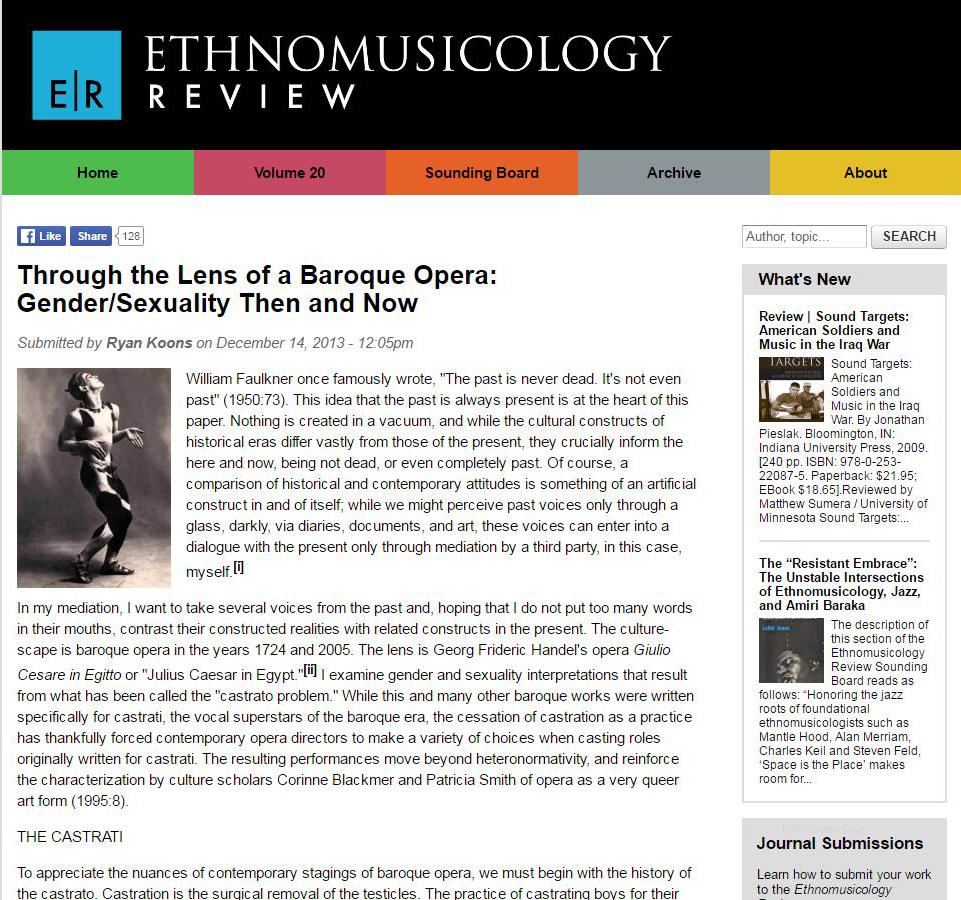This peer-reviewed article, which appeared in Ethnomusicology Review, contrasts gender and sexuality constructions and interpretations in baroque opera in the present-day and in the early 1700s. Taking the 1724 premiere and a 2005 performance of G. F. Handel’s opera Giulio Cesare in Egitto, I examine gender and sexuality issues that result from “the castrato problem.” Castrati, men whose testicles were removed prior to puberty to retain their high voices, were the superstars of the baroque music era. However, the cessation of castration in the art music world necessitates that directors make a series of choices when casting roles originally written for castrati. The results move beyond heteronormativity, creating titillating and queer performances.
Open-access article link:
File download:

